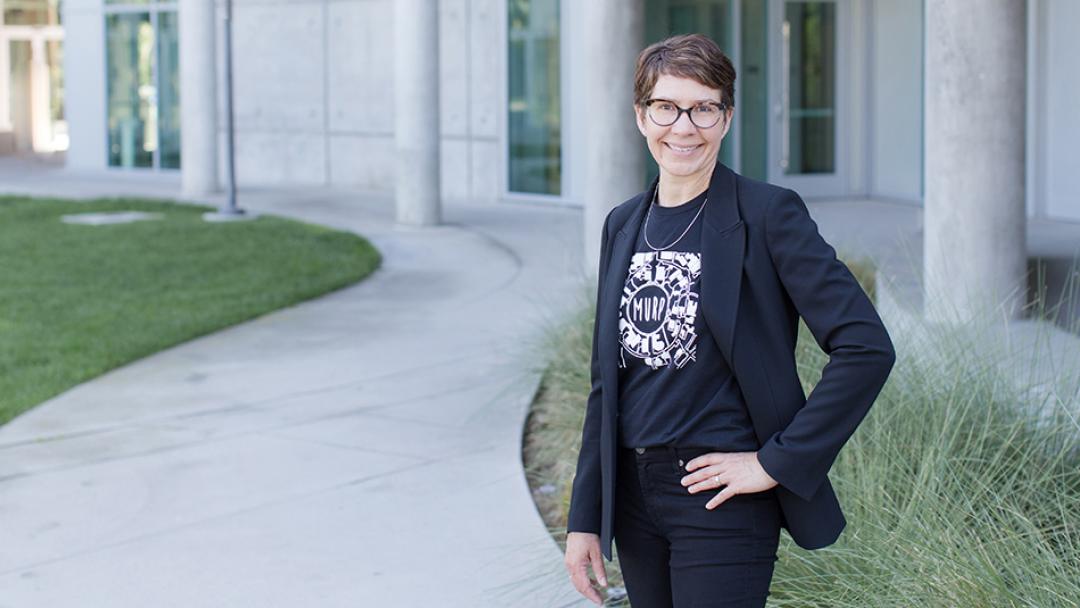
Virginia Parks’ report outlines how to successfully move low-wage workers into stable, high-paying public sector jobs.
New report surveys participants in Los Angeles job training program
A new report, by Virginia Parks, professor and chair of urban planning and public policy, analyzes a union job training program in Los Angeles outlines how to successfully move low-wage workers into stable, high-paying public sector jobs. Her research measures the impact of the Utility Pre-Craft Training (UPCT) program run by the International Brotherhood of Electrical Workers (IBEW) Local 18 in coordination with the Los Angeles Department of Water and Power (DWP).
The research was commissioned by DC-based Community Change and shared with RePower LA. In 2011, IBEW Local 18, LADWP, and RePower LA fought to create a pathway for good union jobs at LADWP middle-class sustaining careers. The UPCT program trains people with no previous electrical or water-related experience and prepares them to work at the Los Angeles Department of Water and Power.
“IBEW Local 18 has a proven track record of moving people from communities of color, from low-income backgrounds, women, and people with carceral histories out of low wage jobs without benefits into high wage, family-sustaining jobs,” said Agustin Cabrera, Director of RePower LA. “The UPCT program is not only about the training; it is about fighting against the systems of oppression that value the lives of poor people less.”
The UPCT program works because it is nontraditional and rigorous, both mentally and physically. Trainees must first pass a set of math and reading comprehension readiness exams after an intensive three-day “boot camp.” Applicants who pass these exams and the background check then move into the program’s classroom training portion—a three-month course of study focusing on electrical theory and requisite math skills. Finally, participants move into six-month on-the-job field rotations within the LADWP, including home weatherization, custodial, warehouse, water, and power rotations. The program has an “earn while you learn” wage of $19 per hour and a healthcare subsidy, allowing trainees to pay rent and feed their families while in the program. Participants remain in the program while studying for the civil service exams and interviewing for permanent positions at LADWP or other City Departments.
“When I started the program, I was the first woman in the first class of UPCTs, and in a few years, I got my forklift license, I’ve been on roofs, installing showerheads, electrical lights, and a number of other things I never thought I would do at my age,” said LaWanda Davis, a former UPCT working at LADWP. “I have a good job with benefits, vacation, and the union backing me. It makes a world of difference for me.”
The report shows that the program is hugely successful, with 83 percent of participants hired into a public sector job (75 percent by DWP) and a median hourly wage of $39.15 per hour. Seventy-seven percent of respondents were people of color, all previously unemployed or in low-wage jobs, and 26% were women. A number of those hired were previously incarcerated. The UPCT program’s success in Los Angeles offers a pathway forward, an agenda of change that leverages the public sector as a life-long mobility pathway for workers of color.
“Careers at LADWP are among the best at providing a path to the middle class, but the hiring process is often long and complicated, too often shutting out the very people we want to hire and provide with opportunities,” said LADWP Board President Cynthia McClain-Hill. “The UPCT program expands opportunity by providing steady employment while training participants in green collar and skilled crafts and professions. We are inspired by its success and are committed to expanding the program.”
In interviews, workers spoke about how the UPCT program prepared them not only for particular jobs but for a career, arming them with strategies necessary to move ahead in the civil service promotion system. Recovering from COVID-19 and the impact it had on the health of our communities and our economy will require a deliberate confronting of systemic oppression and prioritizing of workers of color who are the hardest impacted in this pandemic. Expanding the UPCT program and creating more programs like it will be significant steps towards recovery.
“The UPCT is more than just training. The support from union staff who fight for every single worker in the program fuels the program’s success,” Parks said. “The UPCT program offers the nation an agenda of change that leverages the public sector as a life-long mobility path for workers of color. It’s a model that should be replicated across the country.”
Related Webinar
Parks will be the featured speaker for an April 15 webinar, which is free and open to the public. She will discuss her report's findings at 10 a.m. PT/1 p.m. ET. RSVP to attend.
Features